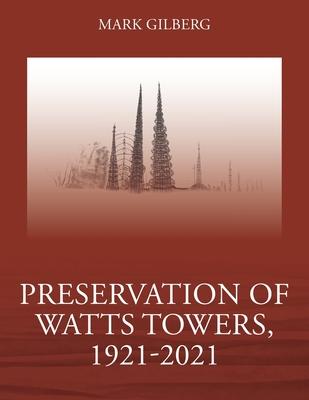In 1921, an Italian immigrant named Sabato Rodia purchased a property in Watts, California, and started building a series of sculptures and decorative features in his backyard, including three open, pyramidal-shaped towers - two of which are nearly 100 feet tall. Though Rodia referred to his creation as Nuestro Pueblo (Our Town), today, it is known collectively as the Watts Towers. Constructed over 35 years, Watts Towers remains a marvel of structural engineering and architecture and is widely recognized as one of the finest examples of "outsider art" or "land-based" art in the United States. Rodia abandoned his property in 1954 never to return. Over the years Watts Towers has experienced a long history of vandalism and neglect punctuated by major conservation campaigns and interventions. This book describes in great detail the history of these preservation efforts with a view to collecting and synthesizing all available information into one coherent study.

In 1921, an Italian immigrant named Sabato Rodia purchased a property in Watts, California, and started building a series of sculptures and decorative features in his backyard, including three open, pyramidal-shaped towers - two of which are nearly 100 feet tall. Though Rodia referred to his creation as Nuestro Pueblo (Our Town), today, it is known collectively as the Watts Towers. Constructed over 35 years, Watts Towers remains a marvel of structural engineering and architecture and is widely recognized as one of the finest examples of "outsider art" or "land-based" art in the United States. Rodia abandoned his property in 1954 never to return. Over the years Watts Towers has experienced a long history of vandalism and neglect punctuated by major conservation campaigns and interventions. This book describes in great detail the history of these preservation efforts with a view to collecting and synthesizing all available information into one coherent study.